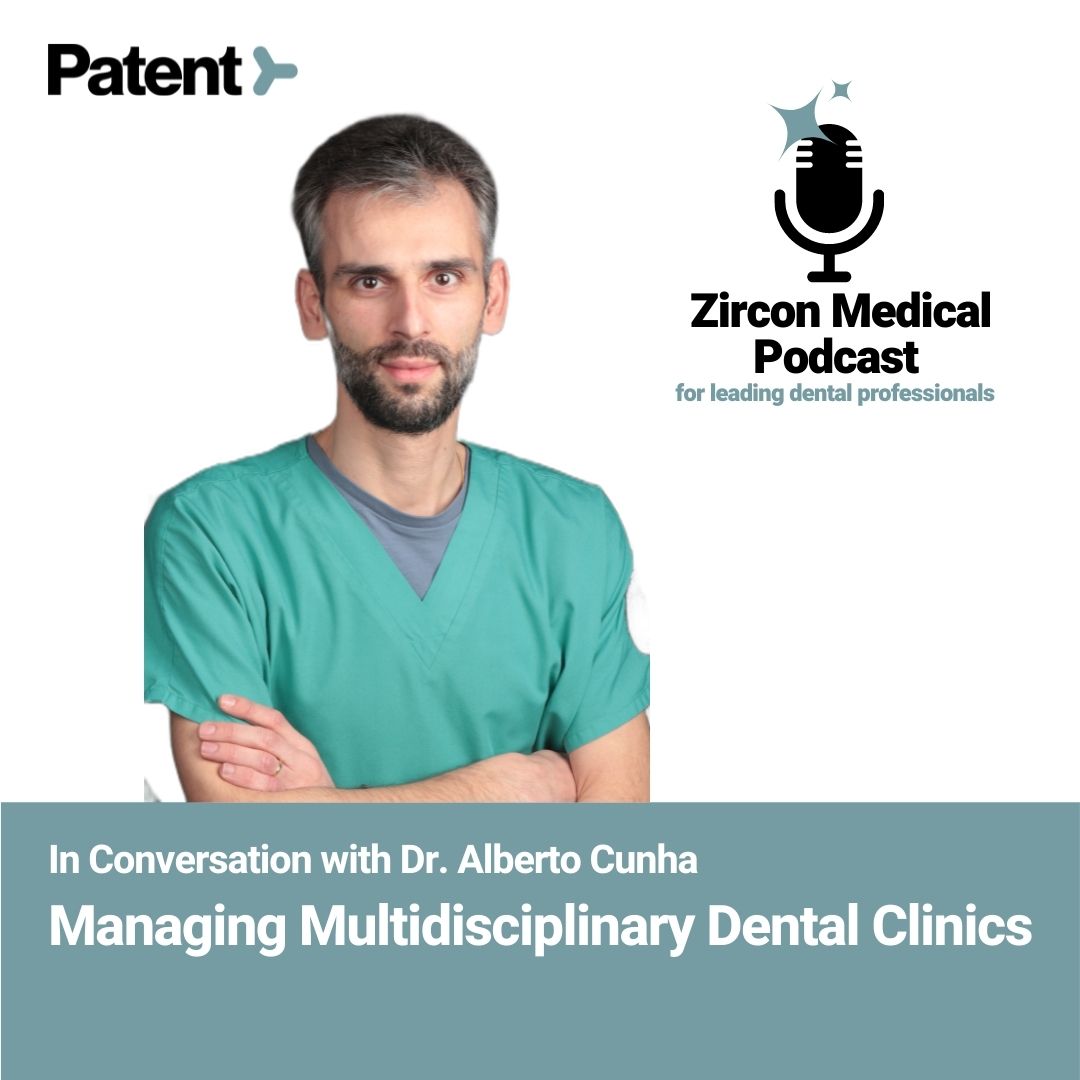Dr. Alberto Cunha
Clinical Director of OralMED Saúde in Portugal
Clinical Director of OralMED Saúde for over 8 years
Implantologist for multidisciplinary dental clinics in Portugal
Specializes in oral surgery and implantology
Pursuing Master’s in Oral Surgery
Facebook:https://www.facebook.com/DentalLixa
Instagram: https://www.instagram.com/albertodmcunha/
LinkedIn: https://www.linkedin.com/in/alberto-cunha-35211693/
R. BombeirosVoluntários, 4615-604 Vila Cova de Lixa, Portugal
In Conversation with Dr. Alberto Cunha
Dentistry is a broad subject involving numerous sub-specialties, most of which need to function together. Managing a dental clinic specializing in numerous specialties can pose certain challenges, especially since it’s not possible for one dentist to specialize in all areas. Our team at Zircon Medical recently hosted Dr. Alberto Cunha, the CEO and clinical director of OralMED Saúde in Portugal, on our podcast series to discuss managing multidisciplinary dental clinics.
Introducing Dr. Alberto Cunha, the clinical director of OralMED Saúde in Portugal
Dr. Alberto Cunha is the CEO and clinical director of OralMED Saúde, a collective of 50+ dental clinics, laboratories, and training centers in Portugal. He also works as an implantologist for numerous multidisciplinary dental clinics in Portugal, and he’s currently pursuing his Master’s in Oral Surgery. Dr. Cunha says he initially joined the medical school just for the degree, but he gradually discovered his love for dentistry, a passion that continues growing every day.
Ensuring a pain-free implantology experience for all patients
When asked about his approach to implantology, Dr. Cunha said his primary goal is ensuring the patient’s comfort. He uses the simplest techniques available to ensure good, aesthetic results without pain or complications. To ensure a safe and convenient experience, he places the utmost emphasis on comfort, aesthetics, and aftercare. After implant surgery, he schedules follow-up appointments at various milestones, such as 7 days post-op, 15 days post-op, and so on.
Periodontology must go hand-in-hand with implantology
Dr. Cunha says all disciplines of dentistry are important, but periodontology must work with implantology. Gingival health is one of the most important factors for the success of dental implants, but approximately 80% of all patients have some gum inflammation. Dr. Cunha starts implant treatments with patient education, guiding them to adopt oral hygiene habits for gum health. If the patient suffers from severe gum disease, he treats the periodontal condition before placing implants.
Common challenges with dental implants and keeping pace with changes
Dr. Cunha says one of the most common problems he faces while placing dental implants is the low vertical height of the bone, which necessitates shorter implants. However, shorter implants aren’t ideal for long-term implant treatments, so a low vertical height is hard to compensate. However, Dr. Cunha says he’s constantly learning and educating himself to bring new innovations, techniques, and concepts into his practice to improve dental implant possibilities.
Next steps for Dr. Alberto Cunha
Dr. Cunha says he’s still learning new skills and technicians and that the education process never ends. He aims to increase dental implant procedures in his private practice and focus specifically on oral surgery. Eventually, he wants to establish a practice specializing primarily in oral surgery. When asked how he manages all of his current roles and responsibilities, he answers simply that he has an excellent team — good people and good schedules.
You can find Dr. Alberto Cunha at his private practice or follow him online via LinkedIn or Instagram. You can also listen to him on our Zircon Medical Podcast.












